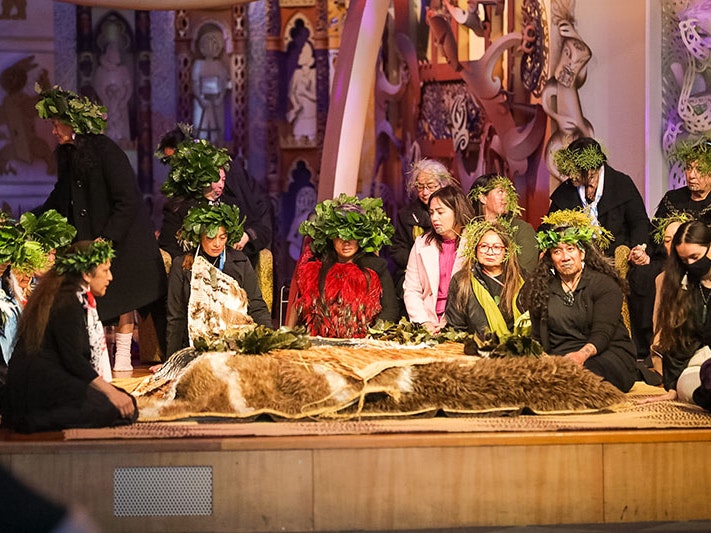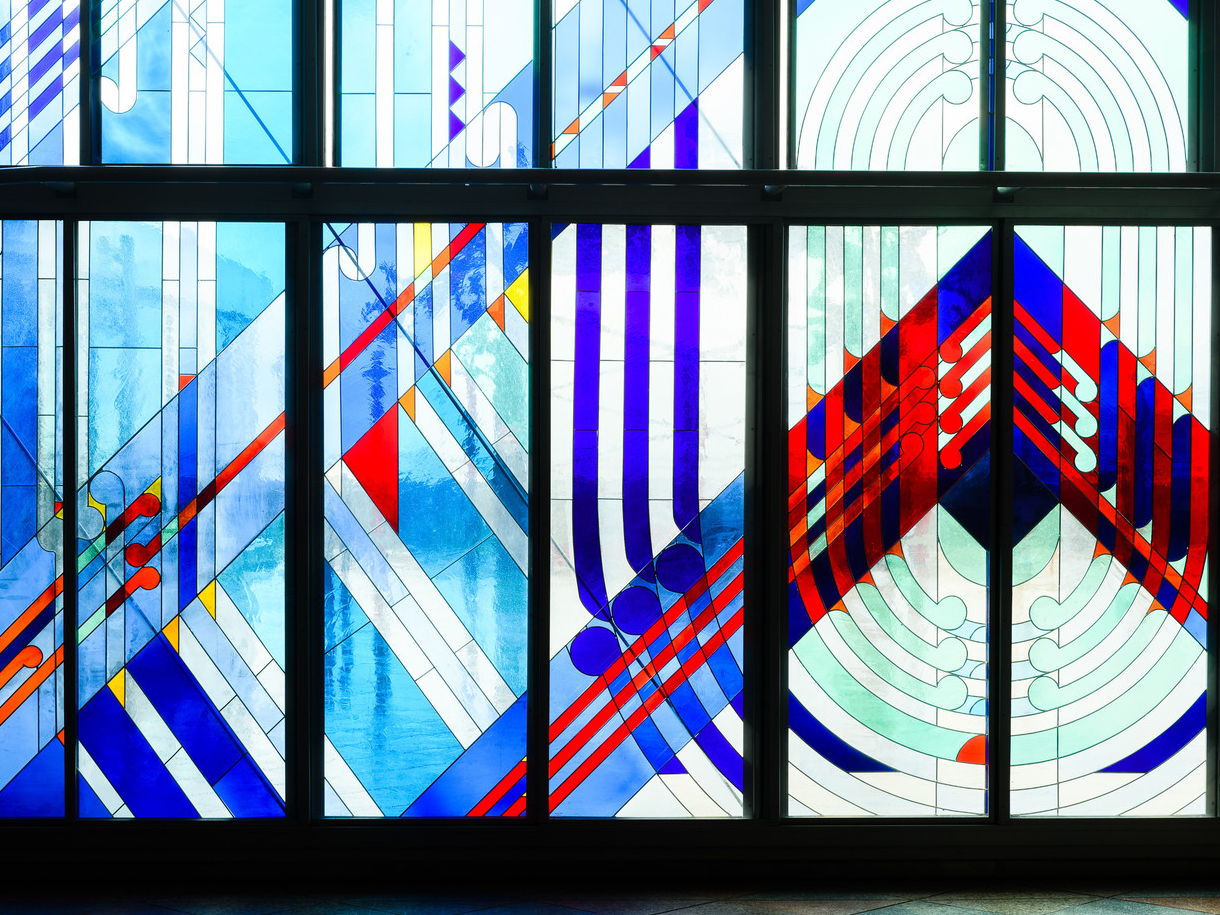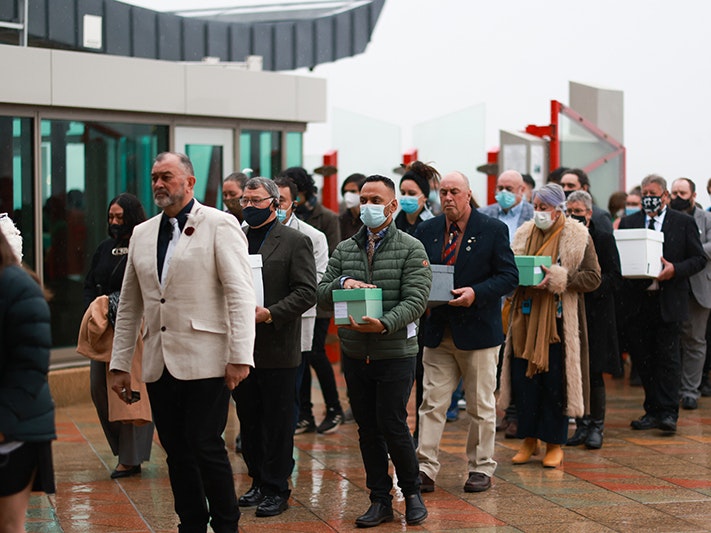While the Austrian Empire’s ambitions to become a colonial power in the 19th century were unsuccessful, its subjects spread throughout the world encouraged to expand their knowledge of other countries through research and the study of collections.
Numerous people were charged to collect minerals, plants, and animals, and were encouraged to steal human remains and ethnographic artefacts for Austria’s many museums. It was through the direct actions of individuals such as the Austrian taxidermist and notorious grave robber, Andreas Reischek, and Ferdinand von Hochstetter that the sacred ancestral remains of Māori and Moriori were taken from Aotearoa New Zealand’s wāhi tapu to Austrian collections.
In 2017, Te Herekiekie Herewini, Karanga Aotearoa Head of Repatriation, led a delegation to the Natural History Museum in Vienna to karakia, mihi, and to make a formal inquiry into the Māori and Moriori remains in the Museum’s Department of Anthropology.
This inspired Prof. Dr Sabine Eggers and a team of students to investigate the provenance of these ancestral remains, using archival documentation and the original diaries written by Reischek that had not been transcribed or translated before. They contained clear evidence of the wrongdoings associated with the unethically acquired collections. After decades of negotiations, these diaries formed the basis of the repatriation of these ancestors to Aotearoa New Zealand.
In this talk, Prof. Dr Eggers presents a background to the various collectors, their connections to each other, and expeditions involved in the illicit collection and trade of tūpuna and karāpuna, and their difficult and long-awaited journey home to Aotearoa New Zealand.
This lecture and kōrero is presented by The Karanga Aotearoa Repatriation Programme, in association with the Department of Anthropology of the Natural History Museum, Vienna. It follows the recent and significant return of kōiwi tangata and kōimi t’chakat from Austria to Aotearoa New Zealand.
Watch the livestream from 6 Oct 2022
Prof. Dr Sabine Eggers
Prof. Dr Sabine Eggers is an anthropologist who moved from Brazil to Austria in 2017. In Brazil, she was a professor of medical genetics and bioarchaeology. Shortly after she was appointed as head of the international anthropological collections of the Anthropology Department at the Natural History Museum Vienna. Between 1998 and 2016, she tenured as Professor of anthropology at the University of Sao Paulo (USP) with research in Paleopathology, Bioarchaeology, and Paleonutrition of South American ancient populations, Head of the Laboratory for Biological Anthropology at USP.
Courtney Johnston – Tumu Whakarae | Chief Executive, Te Papa
Courtney Johnston took up the role of Tumu Whakarae | Chief Executive in December 2019, and was the 2015 recipient of a Winston Churchill Memorial Trust Scholarship to research contemporary museum practice in the United States. Courtney brings a wealth of experience to the role, spanning museums, digital development, and governance. She has held roles at City Gallery Wellington, the National Library of New Zealand, and was Director of The Dowse Art Museum and Petone Settlers Museum from 2012 to 2018. She was the 2015 recipient of a Winston Churchill Memorial Trust Scholarship to research contemporary museum practice in the United States.
She is a past chair of Museums Aotearoa and has also held a range of governance and advisory roles with the National Digital Forum, Tohatoha (Creative Commons Aotearoa New Zealand), Inland Revenue, and MBIE.
Dr Amber Aranui – Ngāti Kahungunu, Ngāti Tūwharetoa
Curator Mātauranga Māori
Curator Mātauranga Māori and the former project lead for Ngākahu – National Repatriation Project, which supports New Zealand museums and iwi in the return of ancestral remains held in museums collections. She is a founding member and former chair of the New Zealand Repatriation Research Network, set up to assist repatriation researchers to work collaboratively with the aim of proactively returning ancestral remains back to iwi, hapū, and other communities around the world. Amber has worked to develop the national policy on repatriation for the New Zealand museum sector. She is also working with her own iwi on repatriation initiatives relating to the return of . Amber has recently taken up the position of Curator Mātauranga Māori at Te Papa.
Amber was the researcher for the Karanga Aotearoa Repatriation Programme for over 11 years, and has published and presented at international conferences on the topic of repatriation relating to; ethics, provenance research, collecting, indigenous perspectives, community collaboration and human rights.
Te Arikirangi Mamaku-Ironside – Ngāti Awa, Tūhoe, Ngāti Makino, Ngāpuhi, and Te Arawa
Kaitohutohu Kōiwi Tangata | Acting Head of Repatriation, Karanga Aotearoa Repatriation Programme, Te Papa
With over thirteen years’ experience as the programme coordinator for Karanga Aotearoa Repatriation Programme, Te Arikirangi recently stepped into the role of the programme’s Acting Head of Repatriation. His expertise in tikanga Māori, te reo Māori, kapa haka, mau rākau and guides his mahi; liaising with institutions, delivering repatriation seminars, and facilitating dialogue with Maori and Moriori communities and government stakeholders.
Throughout his time with Karanga Aotearoa, Te Arikirangi has been involved in the repatriations of over eight hundred Maori and Moriori ancestral remains from international institutions and private collections in North America, Australia, Europe, and the United Kingdom.


